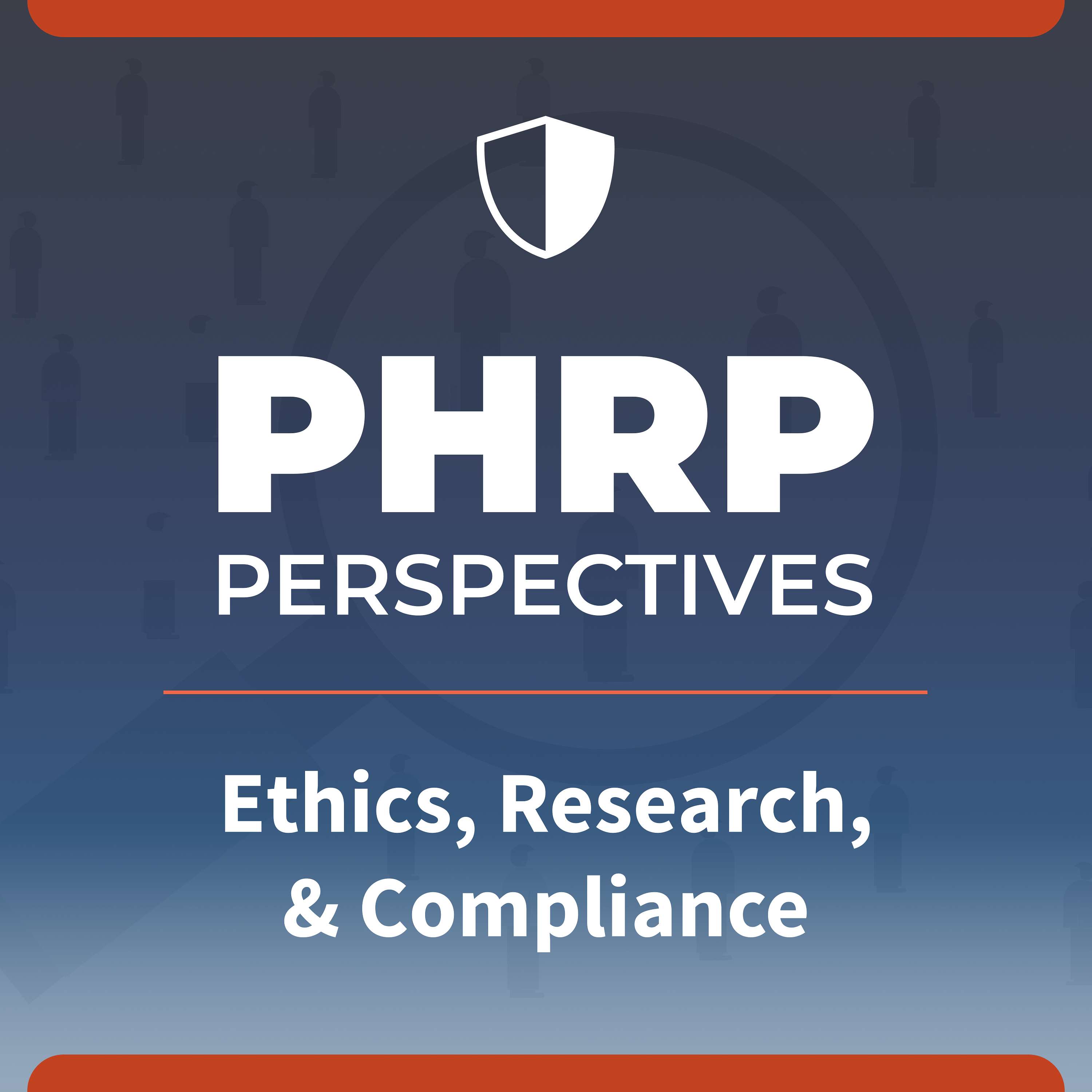PHRP Perspectives

PHRP Perspectives
Podcast Description
PHRP Perspectives is your go-to resource for navigating ethics, compliance, and best practices in human subjects research. Each episode delivers expert insights, practical advice, and real-world stories to help you stay ahead and make informed decisions. PHRP Perspectives is brought to you by PHRP Online Training.
Podcast Insights
Content Themes
The podcast covers topics such as informed consent, community outreach, and compliance tools relating to human subjects research, with episodes like Improving IRB Community Outreach discussing strategies for enhancing internal and external engagement.

PHRP Perspectives is your go-to resource for navigating ethics, compliance, and best practices in human subjects research. Each episode delivers expert insights, practical advice, and real-world stories to help you stay ahead and make informed decisions. PHRP Perspectives is brought to you by PHRP Online Training.
Join PHRP Perspectives as we explore the increasingly important world of reliance agreements in human subjects research. In this episode, Joe Smith and Vidhi Rami from the University of Maryland walk us through how these agreements reduce administrative burden, streamline IRB reviews, and ensure regulatory compliance in multi-site studies.
In this episode of PHRP Perspectives, Advisory Board member Joe Smith sits down with Vidhi Rami (IRB Specialist, Reliance Agreements) to demystify reliance agreements and collaborating across HRPPs. They share how single-IRB review reduces duplicate work, what “reviewing” vs. “relying” institutions actually do, and why local context still matters. You’ll also hear real-world tips on organizing the process, setting expectations with partner IRBs, and using resources like SMART IRB and AAHRPP guidance to build a scalable program.
Show Notes:
Joe Smith and Vidhi Rami discuss the power and complexity of reliance agreements in human subjects research. Their key discussion points include:
- What Are Reliance Agreements?: Reliance agreements allow one IRB to assume oversight for a multi-institution research project, significantly reducing duplicative review efforts and speeding up study launches.
- Roles & Responsibilities Clarified: Reviewing IRBs handle approvals and monitoring, while relying institutions ensure their investigators are properly trained and resourced. Clear documentation of roles is essential.
- Why Institutions Decline Agreements: Common reasons include lack of human subjects involvement or institutional policies requiring reliance only when federally mandated. Capacity and expertise also play a role.
- Improving the Process Internally: Organizing communication, training administrative staff, and collecting data more efficiently (e.g., replacing Word docs with simple emails) can make a major impact.
- Go-To Resources & Tools: SMART IRB and AAHRPP were cited as essential platforms and frameworks for best practices, standard operating procedures, and building institutional confidence in reliance agreements.
PHRP Online Training helps ensure ethical, safe research practices with human participants through accessible, up-to-date courses. Designed to meet HHS standards, the training includes realistic scenarios, exam-based certification, and two course options tailored to biomedical or social, behavioral, and educational (SBE) research. Individuals and institutions receive one-year access and a downloadable certificate upon completion. Institutional partners enjoy custom portals with branded URLs and messaging. Courses are offered in English, Spanish, and French, with CE credits available. Learn more at PHRPTraining.com.

Disclaimer
This podcast’s information is provided for general reference and was obtained from publicly accessible sources. The Podcast Collaborative neither produces nor verifies the content, accuracy, or suitability of this podcast. Views and opinions belong solely to the podcast creators and guests.
For a complete disclaimer, please see our Full Disclaimer on the archive page. The Podcast Collaborative bears no responsibility for the podcast’s themes, language, or overall content. Listener discretion is advised. Read our Terms of Use and Privacy Policy for more details.